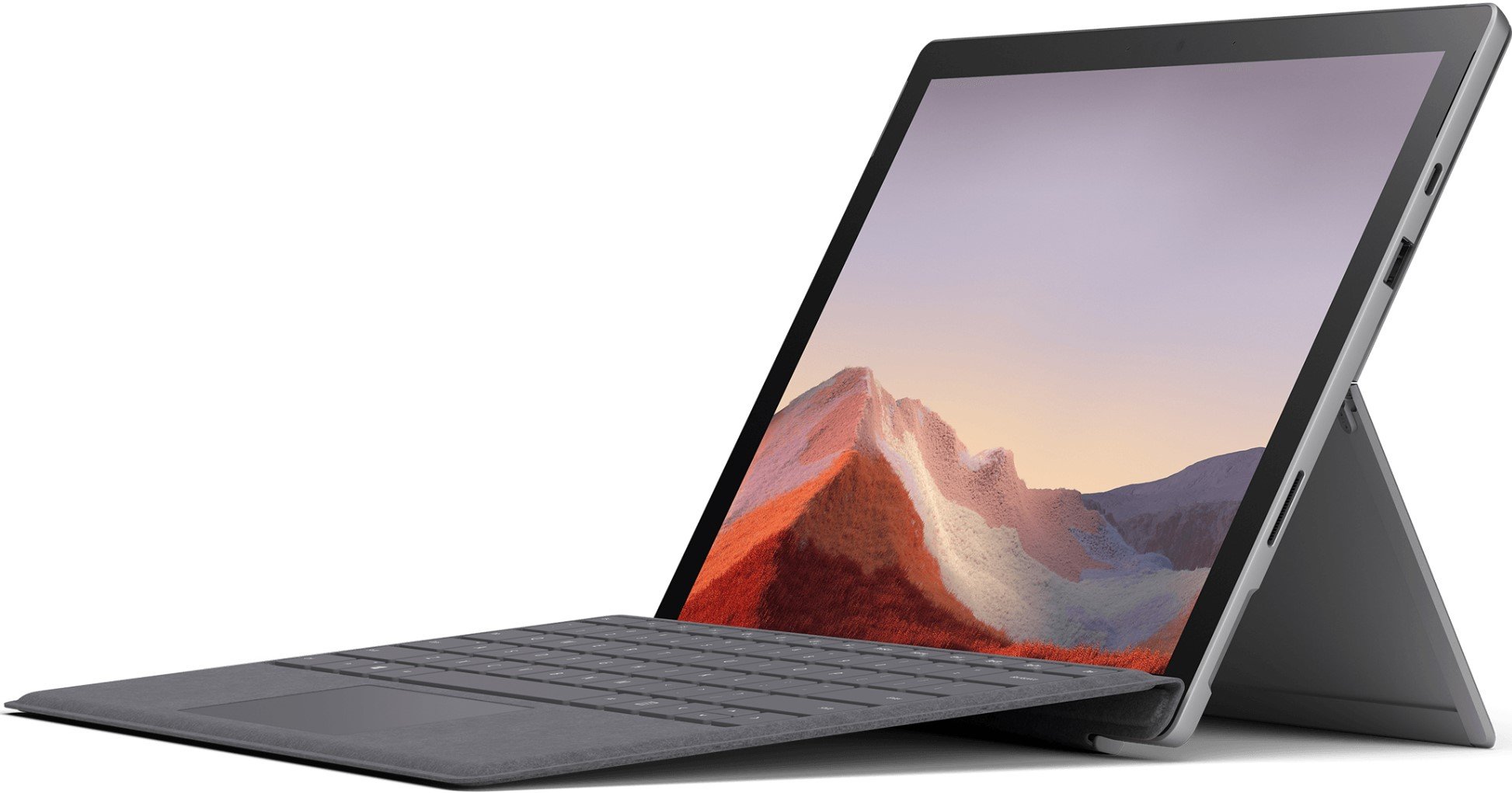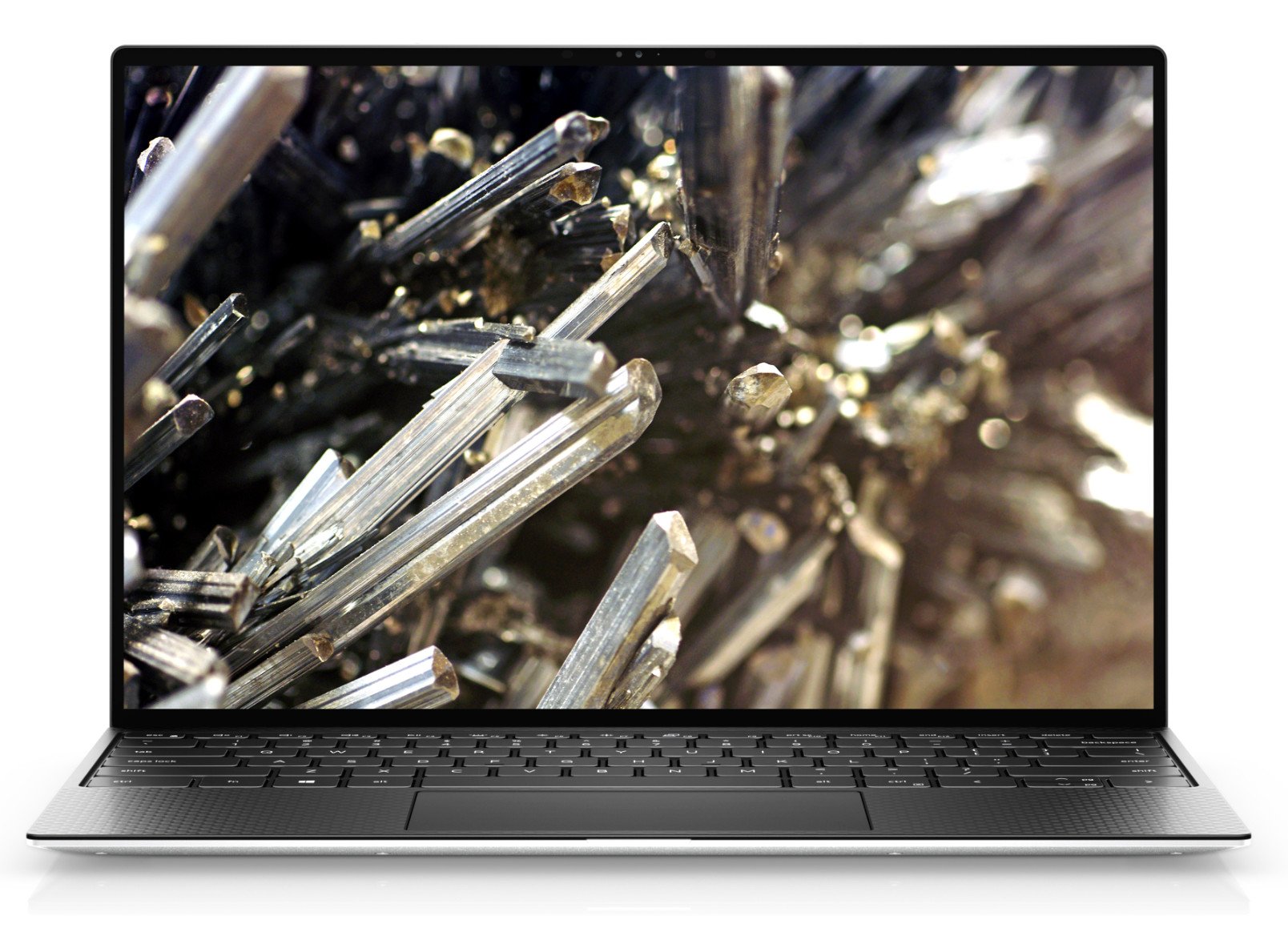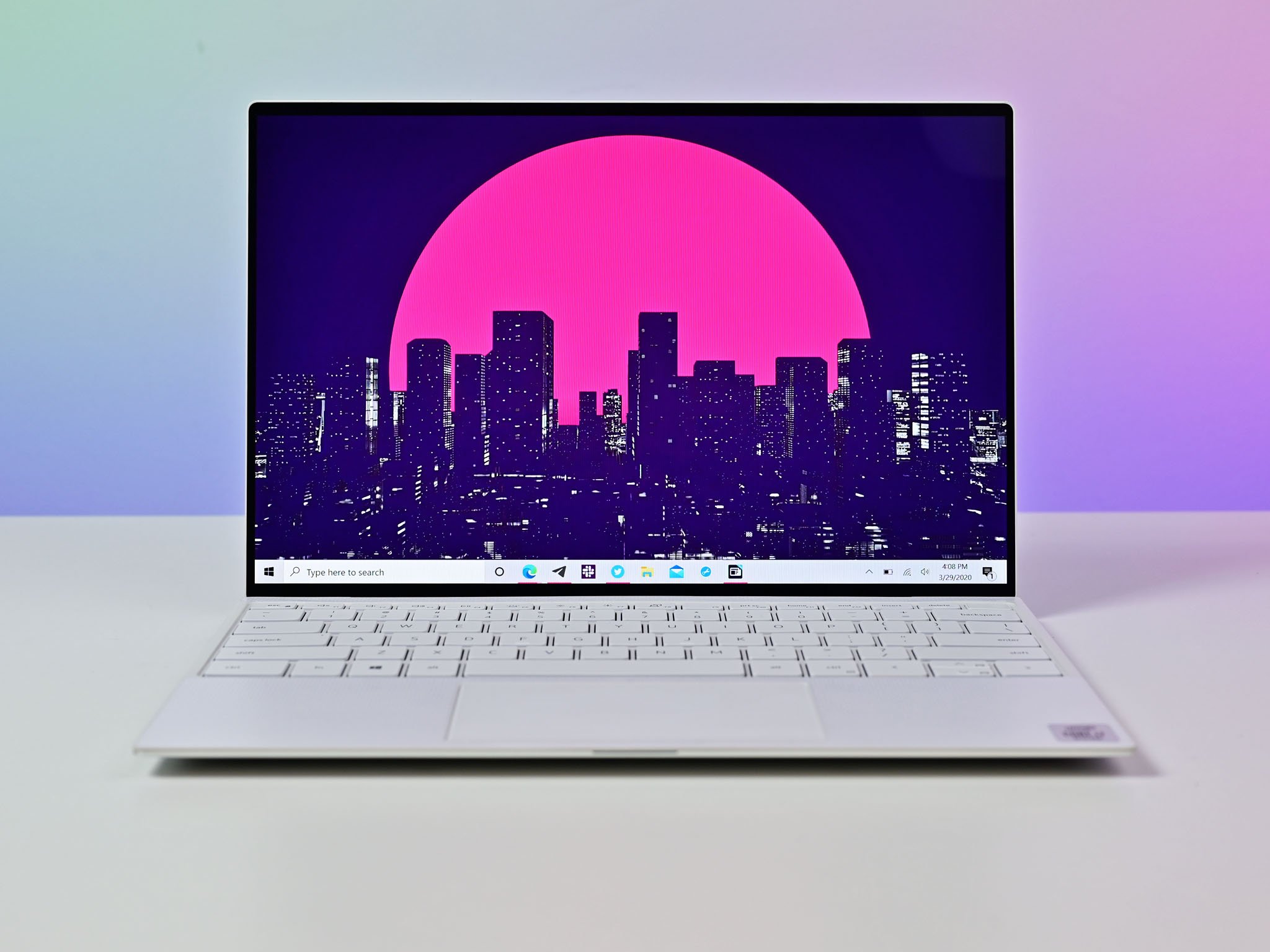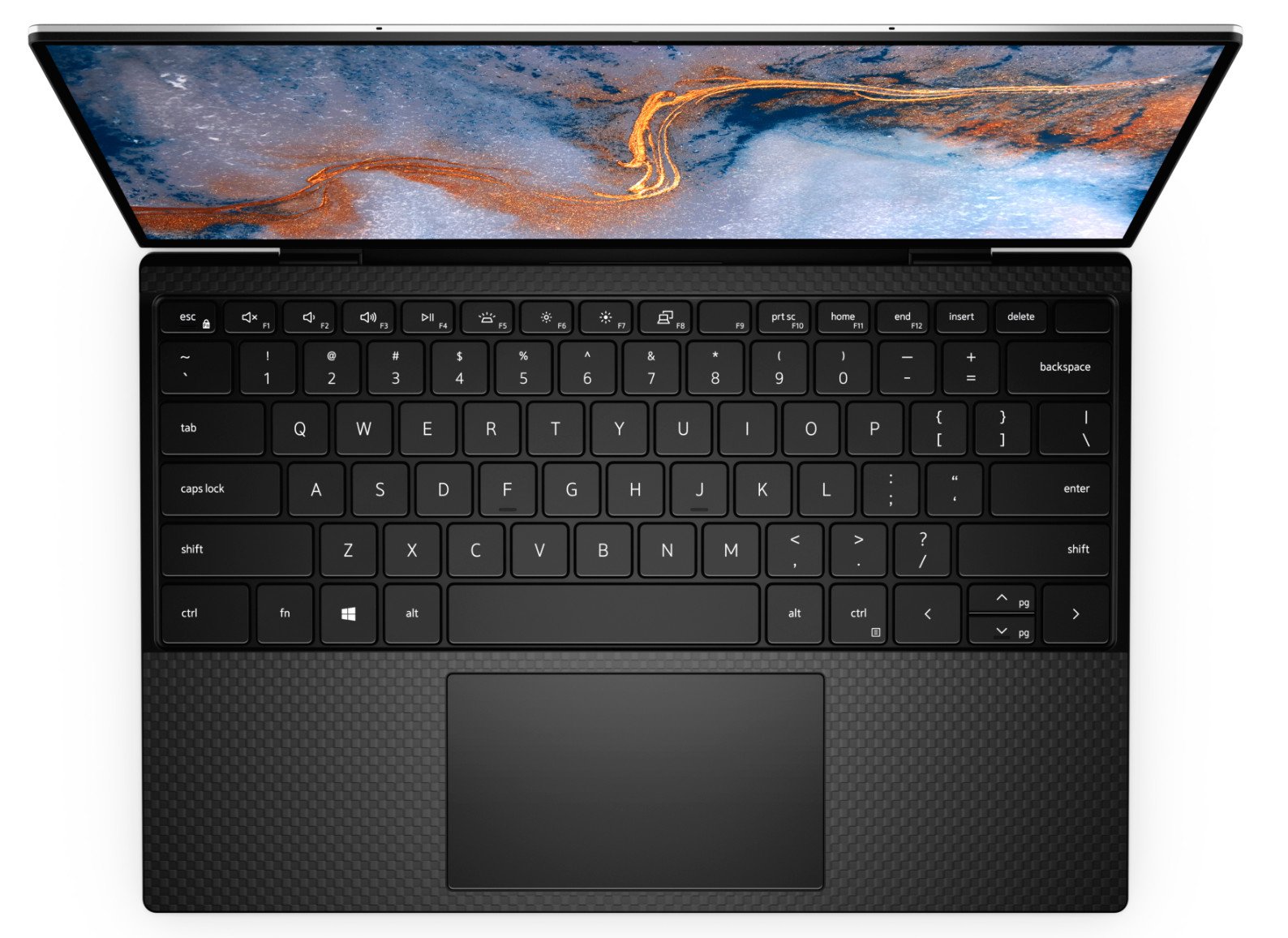Top 2-in-1
Microsoft Surface Pro 7
Pros
- 10th Gen Intel CPUs
- USB-C port
- Wi-Fi 6
- Supports inking
- Lower starting price
Cons
- Pay extra for a keyboard
- Smaller battery
- No Thunderbolt 3
The Surface Pro 7 brings 10th Gen Intel "Ice Lake" processor options for excellent performance and Wi-Fi 6 compatibility. It now has a USB-C port, too, albeit without Thunderbolt 3. However, you'll still have to pay extra for a Type Cover if you want this to be your laptop.
Top Ultrabook
Dell XPS 13
Pros
- 11th Gen processors
- Optional 4K display
- Great battery life
- Thunderbolt 4 USB-C
- Wi-Fi 6
Cons
- No digital pen support
- Not all models have touch
The XPS 13 is one of the very best all-rounders and became a class leader for a reason. The newest version is a mild refresh, but with the addition of 11th Gen Intel processors with Xe graphics, it maintains its position as the best Ultrabook in town.
Choosing between the best 2-in-1 on the market and one of the best Ultrabooks ever made is a tough decision to make. Both have similar class hardware, support Wi-Fi 6, and have plenty of storage and RAM options depending on your budget. But there are some key areas that one or the other could make more sense. With Black Friday approaching, there will likely also be good chances to save money on both.
Microsoft Surface Pro 7 vs. Dell XPS 13: tech specs
| Surface Pro 7 | Dell XPS 13 | |
|---|---|---|
| OS | Windows 10 | Windows 10 |
| Processor | 10th Gen Intel Core i3-1005G1 Core i5-1035G4 Core i7-1065G7 |
11th Gen Intel Core i3-1115G4 11th Gen Intel Core i5-1135G7 11th Gen Intel Core i7-1165G7 |
| RAM | 4GB, 8GB, 16GB LPDDR4x | 8GB 4267MHz LPDDR4x 16GB 4267MHz LPDDR4x |
| Storage | 128GB, 256GB, 512GB, 1TB SSD | 256GB PCIe SSD 512GB PCIe SSD |
| Display resolution | 12.3 inches Touch2736x1824 267 PPI |
13.3 inches UltraSharp 4K (3840x2400) FHD+ (1920 x 1200) non-touch display |
| Aspect ratio | 3:2 | 16:10 |
| Graphics | Intel UHD Intel Iris Plus |
Intel UHD Intel Xe |
| Ports | USB-C 3.1 USB-A 3.5mm audio Surface Connect microSD card reader |
2x Thunderbolt 4 with PowerShare Headset jack |
| Security | Windows Hello | Windows Hello |
| Battery | Up to 10.5 hours | Up to 19 hours |
| Dimensions | 11.5 x 7.9 x 0.33 inches (292mm x 201mm x 8.5mm) |
4.8mm (0.58") x 295.7mm (11.64") x 198.7mm (7.82") |
| Weight | From 1.7 pounds (775g) | 1.2kg (2.64lbs.) for non-touch 1.27 kg (2.8 lbs.) for touch |
Surface Pro 7 is cheaper and has pen support
Not all Surface Pro 7 spec levels are cheaper — indeed, at the highest end, you can spend more than on an XPS 13. More importantly, the cost of entry into a Surface Pro 7 is much lower than the XPS 13 at just $749 compared to $999 (initial price). Both entry models are comparable, too, albeit with a newer CPU now in the XPS 13.
Even considering the extra cost of buying a Type Cover if you want to go full laptop, the cheapest Surface Pro 7 is still cheaper than the cheapest XPS 13. Best of all, you don't need a Type Cover. Thanks to the wonderful standards of USB and Bluetooth, you could always grab something cheaper to type with. There's also the fact that every Surface Pro 7 has a touchscreen, while the cheaper XPS 13 does not.
Performance between the two machines will be largely similar — they're even about the same size — but there's one area the Surface Pro 7 has a clear advantage. Officially Dell doesn't support pen input on the touch-enabled XPS 13, while the Surface Pro 7 is an absolute beast for inking. Whether drawing or writing, the Surface Pro 7 is one of the absolute best devices for digital pen users that money can buy.
Pair it up with an optional Surface Dial, too, and you get even more flexibility. The Surface Pro 7's form factor also lends itself perfectly to using a pen since it's a tablet first.
Dell XPS 13 has 4K, Thunderbolt 3, and better battery life
The Dell XPS 13, by contrast, is a traditional Ultrabook with comparable internal specs to the Surface Pro 7. However, it does have some tricks up its sleeve that might make more sense to you when making a purchase choice.
For one, the XPS 13 boasts a better battery life. One drawback to the Surface Pro 7 is just limited space inside for all the tech since there's no keyboard portion. The XPS 13 has more space for more battery.
The XPS 13 also has two things that the Surface Pro does not. The first is Thunderbolt 4, which Microsoft still doesn't support, though at least USB-C made it onto the Surface Pro 7. This means you're free to use any Thunderbolt docks or accessories instead of having to get locked behind Microsoft's Surface Connect port.
A 4K display may also be important to you, and you're able to get one on the XPS 13. For most people, the 1080p display will still represent the best overall value, but for some, such as video editors, having 4K is important, and you can't get it on the Surface Pro 7.
Get a Surface Pro 7 if you want a 2-in-1
One of the easiest ways to decide is to figure out if the flexibility you get from the Surface Pro 7 is important to you. If you just want a laptop, then it's probably not the best choice, but if the idea of having both a tablet and a laptop, something you can use for entertainment, drawing, or handwriting, as well as crunching out some work, sounds good, then it's still the one to get. It's also the most affordable at the entry-level.
Top 2-in-1
Microsoft Surface Pro 7
10th Gen Intel CPUs and Wi-Fi 6
The Surface Pro 7 has been refreshed with new CPUs and a USB-C port. It's an ideal device if you want to stay mobile yet have the performance to crush a day's work.
XPS 13 is still a top Ultrabook
The XPS 13 is everything that we love about Ultrabooks. It's compact yet powerful, stunningly designed, and executed, and the latest model is even more amazing than its predecessors. It doesn't have the flexibility the Surface Pro 7 does (but it does come with a keyboard!) though if you're looking for the best laptop, then this is what you should buy.
Top Ultrabook
Dell XPS 13
More awesome than ever
The latest Dell XPS 13 has been refreshed for late 2020, adding Intel's powerful new 10th Gen processors, Wi-Fi 6, a 4K 16:10 display, and much more.








0 comments:
Post a Comment